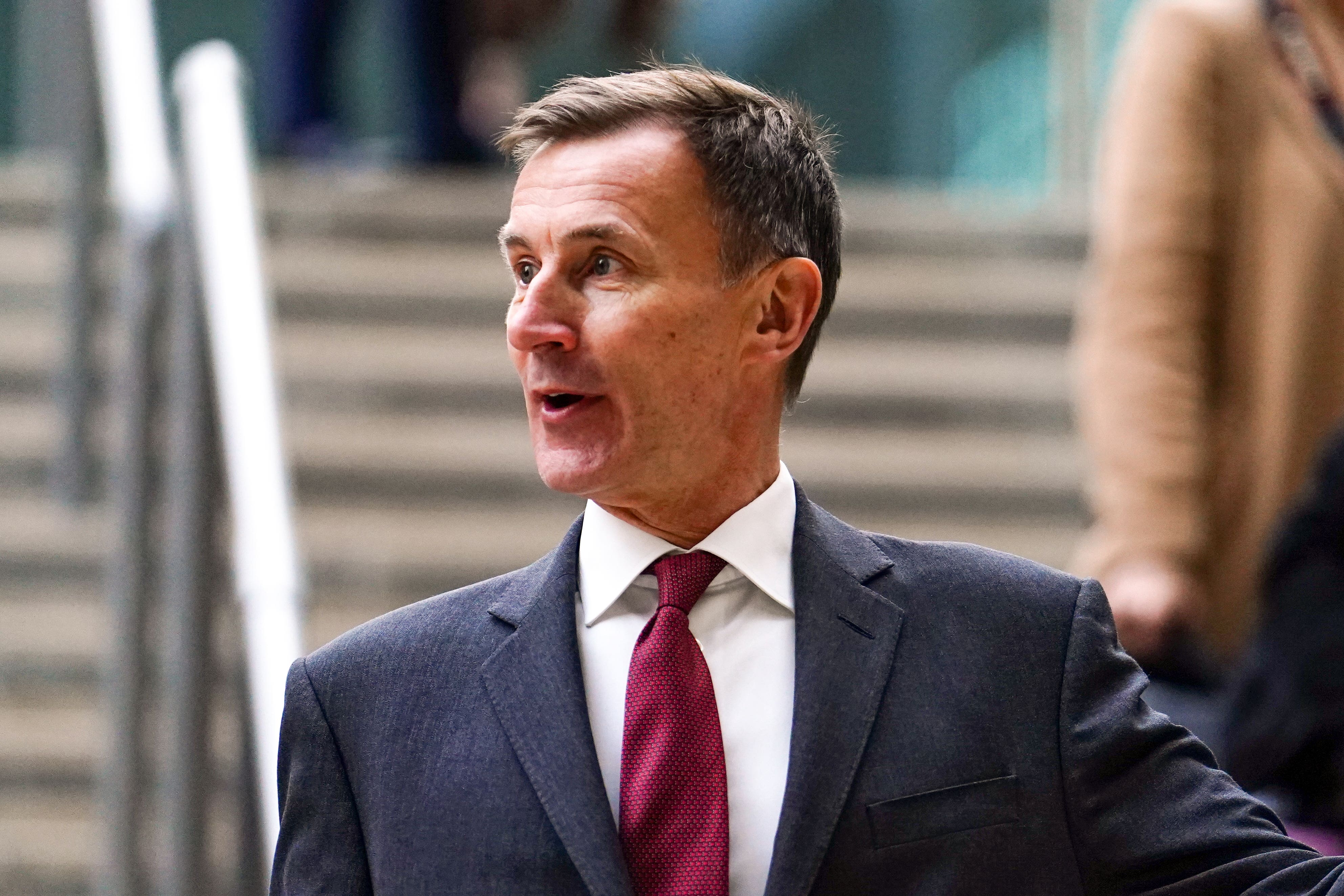What are the key tests for Jeremy Hunt’s upcoming Budget?
Editorial: The real challenge for both the Tories and Labour this week is to show they have a credible plan to boost the UK’s anaemic levels of growth in recent times

Jeremy Hunt’s honeymoon as chancellor will come to an end when he presents his first formal Budget on Wednesday. He and Rishi Sunak deserve credit for steadying the ship after the turbulence and financial market chaos unleashed by their predecessors Kwasi Kwarteng and Liz Truss. But now Conservative MPs, and the public, are looking for more than the “steady as she goes” approach Mr Hunt will probably offer this week.
Although the deficit in the current financial year will be about £30bn lower than forecast last November, Mr Hunt is unlikely to bow to the growing clamour from Tory MPs for immediate tax cuts. The scheduled rise in corporation tax next month, from 19 per cent to 25 per cent, will go ahead. It will be tempered by new allowances for much-needed business investment; though they may be less generous than Mr Sunak’s “super deduction” of 130 per cent tax relief, which is ending.
The chancellor’s headroom is smaller than it looks because the Office for Budget Responsibility fiscal watchdog is expected to downgrade its forecast for growth in the medium term. Mr Hunt will ask jittery Tory backbenchers to be patient, hinting that tax cuts will come nearer the general election next year. He is right to avoid such a giveaway now and would be wise to use any spare resources to end the several disputes over public sector pay so the country can move on from the debilitating wave of strikes.
The chancellor will brand his package as a “back to work Budget” to remove the obstacles to people taking jobs and has pre-announced that families on state benefits will get help with childcare costs in advance rather than in arrears. This is welcome, but he will need to go much further on Wednesday to address crippling childcare costs for millions of families, which are among the highest in the world. It is in the Tories’ interests to take this issue seriously because Labour will make a big offer on it at the election.
With 1.1 million vacancies, the chancellor is right to address the shrinking of the workforce; the number of economically inactive working-age people is 516,000 higher than before the pandemic. The number of 50 to 64-year-olds not in work has risen by 318,000 over this period. But it is not simply a case, as the chancellor has suggested, of older people preferring the golf course.
The biggest factor is a worrying rise in long-term sickness; 2.5 million working-age people are economically inactive for this reason; some 352,000 more than pre-pandemic. Mr Hunt intends to deploy the usual mix of carrots and sticks to cajole people back into work. But he should tread carefully when extending benefit sanctions; a punitive approach is not the right way forward.
A key test for the Budget will be whether it helps people through the cost of living crisis. The Treasury appears to have eventually got the message that help with energy bills must be extended beyond next month. Indeed, the chancellor can afford it because the cost of the government’s energy price guarantee has dropped dramatically due to falling wholesale gas prices. He is expected to retain the 5p a litre cut in fuel duty and yet again continue the freeze that has existed since 2011, knowing that Tory MPs would riot if he did not.
In a small nod to the green lobby, Mr Hunt will promise a £20bn “clean energy reset” to boost carbon capture and storage, but the money will be spread over 20 years. Rachel Reeves, the shadow chancellor, is right to warn that the UK is in danger of losing vital green investment because the US, EU and others are pumping billions into subsidies. The government cannot afford to vacate this playing field; the UK would pay a heavy price for standing on the sidelines.
Green investment can play a pivotal role in securing growth. In his round of media interviews on Sunday, Mr Hunt argued that he has a plan to make the UK “one of the most prosperous countries in the world”. It does not feel like that now, and the chancellor’s selective use of statistics does not mask the reality that the UK is the only G7 economy to languish below pre-pandemic levels.
The real challenge for both the Tories and Labour this week is to show they have a credible plan to boost the UK’s anaemic levels of growth in recent times.



Join our commenting forum
Join thought-provoking conversations, follow other Independent readers and see their replies
0Comments